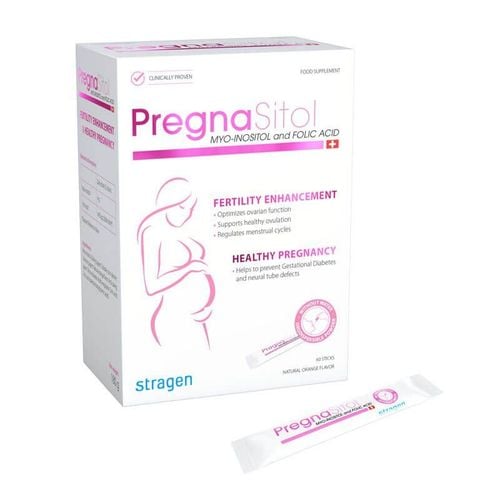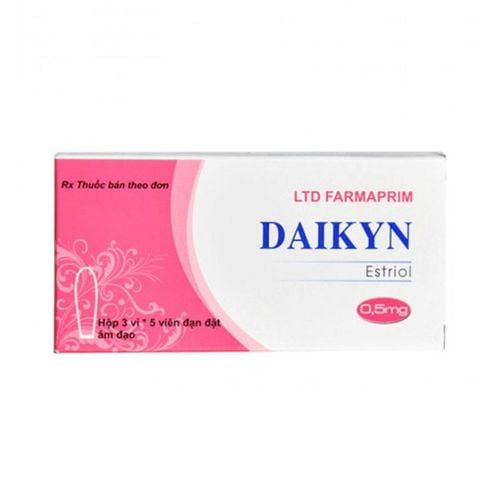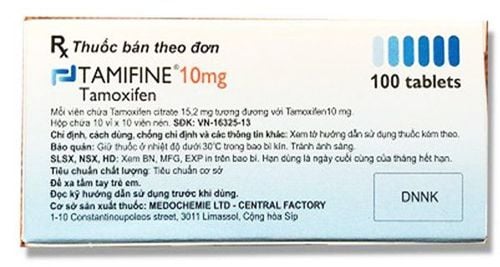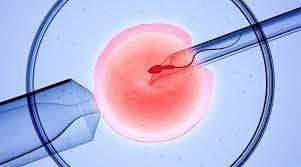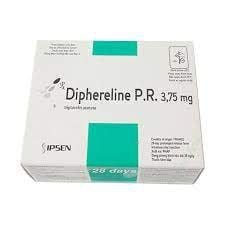This is an automatically translated article.
Crinone is a vaginal gel, often indicated in diseases related to progesterone deficiency such as infertility, in vitro fertilization,... So the use and how to use Crinone to achieve effective treatment how to treat?
1. What is Crinone?
Crinone has the main ingredient Progesterone - a hormone secreted mainly from the corpus luteum in the second half of the menstrual cycle. Progesterone is a sex hormone that is essential for the ovulation and menstrual cycle, and plays an important role in the reproductive process. Progesterone causes changes in the lining of the uterus that make it easier for an egg to be fertilized, attach to the uterus at the start of pregnancy, and then help maintain the pregnancy.Crinone is used in the treatment of women who are unable to get pregnant due to a lack of natural progesterone in the body. Crinone acts on the vaginal mucosa and produces a prolonged release of progesterone (at least for 3 days). Maximum plasma concentrations are reached in 2-6 hours.
2. Indications of the drug Crinone
Crinone is indicated in the following medical conditions:
Disorders related to progesterone deficiency such as infertility due to incomplete luteal phase. In vitro fertilization for tubal infertility, primary infertility, or endometriosis infertility with a normal ovulation cycle.
3. Contraindications of the drug Crinone
Crinone is not indicated in the following cases:
Allergy to progesterone or any other ingredient of the drug. Vaginal bleeding of unknown cause. Tumors of suspected malignancy in the breast, genital organs. Patients with severe liver failure, liver dysfunction. Pulmonary embolism, thrombosis, retinal thrombosis, cerebrovascular dysfunction. Miscarriage. Pregnant women in the last 3 months of pregnancy and breastfeeding are not indicated to use Crinone.
4. Notes when using Crinone
Do not use Crinone concurrently with other intravaginal topical therapy. Monitor liver function before and during dosing in patients with impaired liver function. When thrombophlebitis, cerebrovascular dysfunction, pulmonary embolism and retinal thrombosis occur, discontinue the drug immediately. Crinone can cause fluid retention, therefore, careful monitoring is required in patients with medical conditions such as epilepsy, asthma, cardiac dysfunction. In depressive patients, if the use of antidepressant drugs causes relapses or increases in severity, treatment should be discontinued immediately. In cases of patients with luteal insufficiency, the drug can be used during the first 3 months of pregnancy.
5. Crinone drug interactions
Combining Crinone with Edoxaban may increase the blood concentration of Edoxaban, increasing the risk of serious bleeding complications. Combining Venetoclax with Crinone can significantly increase Venetoclax levels, increasing the risk of developing tumor lysis syndrome, which can lead to kidney failure and even death. Grapefruit and grapefruit juice can increase blood levels of Crinone.
6. Dosage and how to use Crinone
How to use:
Crinone is in the form of a vaginal gel. The medicine is injected directly into the vagina using a special pump. Remove the applicator from the sealed sheath, do not remove the screw cap. Hold the applicator on the thick end firmly with your hand and shake the tip so that the medicine flows down the thin end. Then remove the cover and discard. Patient is sitting or supine with knees bent when applicator is inserted. Gently insert the thin end of the applicator into the vagina, squeeze the thick end of the applicator to inject the gel, finally pull out the applicator and discard. Dosage:
Treatment of infertility due to incomplete luteal phase: Pump once daily starting after ovulation or on the 18th to 21st day of pregnancy. In vitro fertilization: Pump once daily for 30 days if there is clinical evidence of pregnancy.
7. Crinone side effects
Some unwanted effects may be encountered when using Crinone:
Dull abdominal pain, digestive disorders, constipation, diarrhea, nausea, vomiting. Headache, depression, restlessness, cramps, fatigue, drowsiness, dizziness. Decreased libido, breast tenderness, painful intercourse, nocturia. Allergic reactions, vaginal dryness, cystitis, urinary tract infections, vaginal discharge. In summary, Crinone is a hormone used vaginally to treat infertility caused by the luteal phase, cases of artificial insemination,.... The drug must be prescribed by a doctor. specialists, taking drugs as prescribed and monitored by medical staff.





